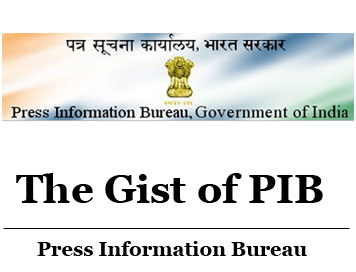(THE GIST OF PIB) Direct Seeded Rice

(THE GIST OF PIB) Direct Seeded Rice
(JUNE-2024)
Direct Seeded Rice
-
Recently, ICAR has commercialised herbicide-tolerant (Ht) basmati rice varieties that can control weeds.
About Direct Seeded Rice (DSR):
-
It is a modern rice cultivation technique where rice seeds are directly sown into the field, replacing the traditional method of transplanting seedlings from a nursery.
-
It is an efficient, and sustainable method of rice cultivation that offers significant benefits for farmers, the environment, and the economy.
-
About Herbicide-Tolerant Basmati Rice: ICAR commercialised non-genetically modified (non-GM) Ht basmati rice. These varieties allow direct application of the herbicide Imazethapyr due to a mutated ALS gene.
-
Scientific debate: Research indicates that hand weeding at specific intervals (20 and 40 days after sowing) in DSR is more effective and yield-enhancing than the use of Imazethapyr.
-
ICAR’s research favours eco-friendly hand weeding over repeated herbicide applications for weed control and higher seed yield.
-
Weed diversity and risks: Imazethapyr targets specific broadleaf weeds (BLW), not all weed types.
-
Herbicide-resistant weeds may evolve, threatening rice production and food security.
-
Similar challenges were seen with Bt-Cotton and pink bollworm resistance.
-
Historical context: In the North Western Plains (e.g., Punjab, Haryana), DSR has been long used for growing Basmati rice.
-
Green Revolution promoted water-intensive transplanted rice, causing ecological issues.
-
Innovations in DSR: From 2014 to 2017, innovations in DSR at IARI Karnal led to the adoption of TAR-VATTAR technology, which uses climatic factors and effective herbicides like Pendimethalin to reduce costs and save water.
CLICK HERE TO DOWNLOAD FULL PDF
CLICK HERE TO DOWNLOAD UPSC E-BOOKS
Study Material for UPSC General Studies Pre Cum Mains
Get The Gist 1 Year Subscription Online
Click Here to Download More Free Sample Material
<<Go Back To Main Page
Courtesy: PIB


